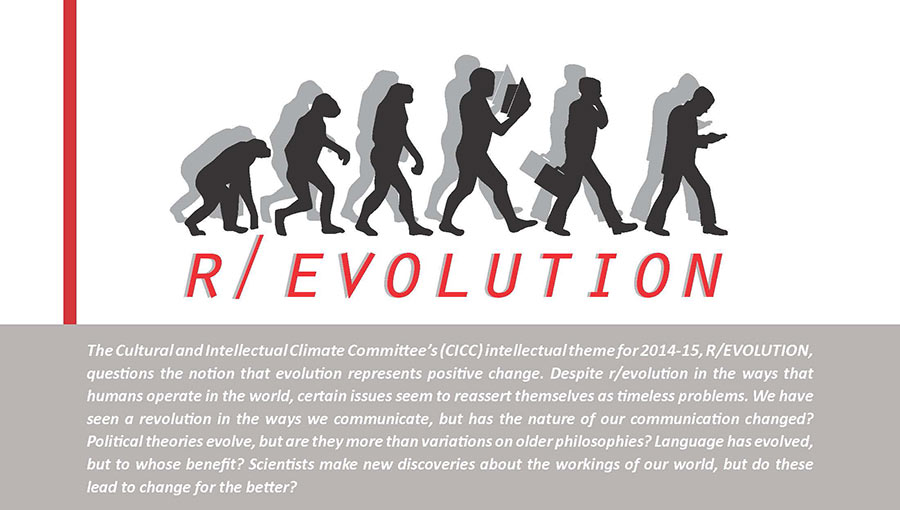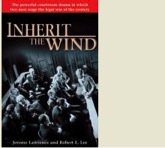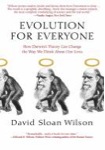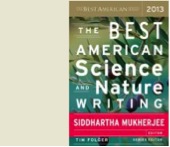2014/2015 Academic Year:




CICC is pleased to announce R/Evolution as the theme for the 2014-2015 academic year. The theme and related programming are being organized around three books that will, together, compose a campus common reading.
We believe the common read can: create a shared academic experience, help us continue discussions of ethics, civility, and global citizenship, foster connections among students, faculty and staff, and increase cross campus participation in and awareness of the yearly theme.
R/Evolution
The Cultural and Intellectual Climate Committee’s (CICC) intellectual theme for 2014-15, R/EVOLUTION, questions the notion that evolution always represents positive change. Please join us in reading any of our three common reads around this theme. Related campus events will also occur throughout the year.
Inherit the Wind (Jerome Lawrence and Robert E. Lee) is a dramatic rendering of the 1925 Scopes “Monkey” Trial, which saw a teacher convicted for teaching Darwin’s theory of evolution, a violation of Tennessee state law at the time. At root, the play stands as a defense of intellectual freedom; as playwright Jerome Lawrence told The New York Times in 1996, “it is about the right to think.”
Evolution for Everyone (David Sloan Wilson) speaks to non-scientists and scientists alike. Rather than dwell on the debates about creationism, this book shows how evolution provides a framework for investigation in many disciplines. Wilson proposes that evolutionary biology might help us better understand religion, culture, psychology, and morality. In accessible language, the book introduces readers to recent developments in evolutionary biology and explains the role of theory in the sciences, but instructors in the humanities and the social sciences will also find provocative essays for student discussions about the still disputed role of biology and genetics in the study of human behavior. Education instructors might be interested in several pieces revealing Wilson's approach to teaching and undergraduate research at SUNY Binghamton, where he is a professor of evolutionary biology and anthropology. This collection of essays can be read in total, or individual pieces can be extracted for shorter assignments. Please visit CICC’s 2014/15 Common Read webpage for further description of the book’s individual chapters.
The Best American Science and Nature Writing 2013 (Siddhartha Mukherjee, Ed.) includes twenty seven essays representing the best of American science writing for a general audience from 2013. The editor, Siddhartha Mukherjee says: “Most of the selected essays share a common thread: they describe how science happens. They don’t present facts alone (although facts are abundant in them). They describe the extraordinary process by which scientists extract those facts from the grim soil, roots and tendrils intact, to glean knowledge about the inner workings of nature.” Please visit CICC’s 2014/15 Common Read webpage for further description of the book’s individual chapters.
For reading guides and other information, please see our Common Read website. Also, visit us on Facebook!
Schedule of Events Fall 2014
September 18, Dr. Alice Dreger: “Who Should Count as a Woman on the Playing Field? Questions of Intersex and Trans in Sports” 7 p.m., Sperry Center Room 105
Dr. Dreger’s talk will discuss how many sports have historically been divided by gender (man/woman), although we’ve generally pretended the division is by sex (male/female). The more that we learn about gender and sex, the more we know the drawing sex and gender divisions is not so easy. So what should happen in sports? This talk will explore this question, taking into account biology, the nature of sport (including the value of fairness), and social justice concerns. Dr. Dreger, who has consulted on this question with the International Olympic Committee’s Medical Commission, will parse out the issues and offer a few possible solutions.
September 23, Dr. James Strick '81: "Darwin and the Origin of Life: Public vs. Private Science” 4:30 p.m., Sperry Center Room 205
Many people assume that Charles Darwin’s theory of evolution is inseparably linked to life first arising by natural chemical means. But what did Darwin really say about this? Interestingly, he said very little in public about the origin of life, and what he does say is remarkable for its apparent ambivalence. Discussing the subject in private letters with supporters, Darwin took varying positions over time. This talk will attempt to interpret Darwin’s writing on the origin of life in the context of the larger public debate over his theory of evolution, as well as Victorian debates over spontaneous generation of life, medicine, science, and the germ theory of disease. It will also draw connections to modern origin of life research supported by NASA as part of the quest to understand the potential of the universe to harbor life beyond Earth.
September 24, Margaret Leng Tan: Sorceress of the New Piano. 4:30 p.m, Sperry Center Room 104
Strumming the strings of the piano like a harp and performing Beethoven and the Beatles on a toy piano are among the surprising scenes in Evans Chan's documentary, which celebrates the trans-cultural career of Singapore-born, New York-based pianist Margaret Leng Tan. (Amazon.com)
October 2 "Making Sense of Ferguson In and Out of the Classroom: How we can Help" Sandwich Seminar by Dr. Sarah Hobson 12 p.m, Jacobus Lounge, Brockway Hall
October 15, Temple Grandin (Film): 7 p.m., Sperry Center Room 105
Starring Claire Danes, Julia Ormond, Catherine O'Hara and David Strathairn, Temple Grandin paints a picture of a young woman's perseverance and determination while struggling with the isolating challenges of autism at a time when it was still quite unknown. The film chronicles Temple's early diagnosis; her turbulent growth and development during her school years; the enduring support she received from her mother (Ormond), aunt (O'Hara) and her science teacher (Strathairn); and her emergence as a woman with an innate sensitivity and understanding of animal behavior. (HBO.com)
November 7, Dr. Anthony J. Nocella II: “Dismantling the School to Prison Pipeline and the Rise of Hip Hop Activism and Transformative Justice” 11:30 a.m., Jacobus Lounge, Brockway Hall
Anthony J. Nocella II will speak about the growing attacks on youth by private and governmental agencies. This presentation examines how the school and criminal industrial complexes construct and depend upon the school to prison pipeline. The pipeline—with its many tactics, strategies, and players—is a manifestation of modern day colonialism overseen by wealthy white Christians who are raging an undeclared war against those with histories, languages, faiths, and cultures that do not meet the status quo determined by the cultural elite. Colonialism is a style of warfare that does not use guns and tankers; rather, it attacks and destroys cultures by targeting and controlling a culture’s youth, who represent the possibility for a new world order. Nocella will discuss his work for youth justice, food justice, Hip Hop activism, and his book, From Education to Incarceration: Dismantling the School to Prison Pipeline (2014).
Spring 2015
February 19: Dr. Edmund Russell (Joyce and Elizabeth Hall Distinguished Professor of United States History, University of Kansas) “Coevolutionary History,” 4:30 p.m., Brockway Hall, Jacobus Lounge
Edmund Russell will speak on the benefits of writing history at an evolutionary scale, as well as on the possibilities of interdisciplinary cooperation between historians and evolutionary biologists. His work should prove provocative to students and faculty members in the sciences and the social sciences, and his talk will compliment the lecture later in the semester by evolutionary biologist David Sloan Wilson.
February 25: Dr. James Gibbs (Professor of Vertebrate Conservation Biology, SUNY College of Environmental Science and Forestry), "Integrating Science and Management to Advance Giant Tortoise Conservation in Galapagos, Ecuador" 7 p.m., Sperry 105
February 26: Dr. Lisi Krall (Professor of Economics, SUNY Cortland), “The Economic Evolution of Dominion,” 4:30 p.m., Brockway Hall, Jacobus Lounge
Economic order is a central aspect of human evolution. Our evolution as a species is not simply a matter of the evolution of our genome, it is a matter of our social evolution. The most profound manifestation of our social evolution is found in the economic configuration of society. Understanding economic order as a central aspect of human evolution provides insight into our tragic historical moment. As we mindlessly orchestrate climate change and the 6th great mass extinction with our economic order, we also confront the possibility that our Pleistocene genome is at odds with our economic evolution. The challenge of sustainability is to reckon our complex evolutionary history.
March 3: Dr. David Franke (Professor of English, SUNY Cortland), “Evolution and Writing,” 1:30 p.m. Old Main, Room 220 - Colloquium,
- Using as a lens his SUNY Cortland “Evolution of Writing” Professional Writing course, a survey of writing from musty Sumerian cuneiform to glittery Twitter, Dr. David Franke will discuss the ways that he imports and adapts evolutionary concepts from biology into the study of “technologies of the word” — yet how some of the persistent myths about biological evolution cause trouble when used to study historical development in writing. He will end his talk by discussing the optimistic theory that writing inherently enhances consciousness and contrast that with the more recent theory that computers degrade it, examining both as artifacts of the imported evolution metaphor.
March 5: Mr. Glenn E. Martin, “From Convict to Conviction: A Grassroots Vision for Criminal Justice Reform in America” 7 p.m., Sperry Center, Room 105
- Martin is a national leader and criminal justice reform advocate who spent six years in New York State prisons. Prior to founding JustLeadershipUSA, Mr. Martin served for several years as Vice President of The Fortune Society and Co-Director of the National HIRE Network at the Legal Action Center. He is Co-Founder of the Education from the Inside Out Coalition, an America’s Leaders of Change National Urban Fellow, and a member of the governing boards of the College and Community Fellowship, Prisoners’ Legal Services, New York Foundation, California Partnership for Safe Communities and the Reset Foundation. He also serves on the advisory board of the National Network for Safe Communities. Mr. Martin regularly contributes his expertise to national news outlets such as MSNBC, Fox News, CNN, Al Jazeera and CSPAN on topics such as policing, decarceration, alternatives to incarceration, and reentry issues.
March 10: Screening of The Singularity is Near: A True Story about the Future 7 p.m., Sperry Center, Room 205
- The onset of the 21st century will be an era in which the very nature of what it means to be human will be both enriched and challenged as our species breaks the shackles of its genetic legacy and achieves inconceivable heights of intelligence, material progress, and longevity. While the social and philosophical ramifications of these changes will be profound, and the threats they pose considerable, celebrated futurist Ray Kurzweil presents a view of the coming age that is both a dramatic culmination of centuries of technological ingenuity and a genuinely inspiring vision of our ultimate destiny. The Singularity is Near, A True Story about the Future, based on Ray Kurzweil’s New York Times bestseller, intertwines a fast-paced A-line documentary with a B-line narrative story. The A-line documentary features Ray Kurzweil interacting with a panoply of thinkers on the impact of exponentially expanding technologies on the nature of human life in the next half century. These ideas are illustrated with cutting-edge graphics and special effects. The intertwined B-line is a Pinocchio story of Ramona (played by Pauley Perrette), a superhero avatar created by Ray. As the adventure unfolds, Ramona becomes more and more independent, hires Alan Dershowitz (who plays himself) to press for her legal rights, and is coached by Tony Robbins (who also plays himself) to discover the true meaning of what it means to be human (www.singularity.com).
March 28: 6th Annual Student Conference on Diversity, Equity, Inclusion and Social Justice: Show Me Your Brave. 8:30 a.m., Corey Union, Function Room,
- The 2014-2015 student conference theme of “Show Me Your Brave” is meant to inspire students to truly think about the meaning of bravery. We want students to challenge themselves to become advocates, allies and active students in society by engaging in difficult conversations around diversity, avoiding becoming a bystander, speaking up when no one is watching, and reflecting on themselves to see just how big their brave truly is. The theme meaning is deeper than just showing others that “you are” brave, but rather taking ownership of the bravery you have inside of you to show others how big YOUR brave is. (SUNY Cortland Multicultural Life and Diversity Office)
- Keynote Speaker: Lyndon Huling, former Assistant Director of Multicultural Life and Diversity Office)
March 31: Screening of Fixed: The Science/Fiction of Human Enhancement followed by Q&A with Regan Brashear, the film’s director and producer. 4:30 p.m., Sperry Center, Room 205
- Award-winning documentary, Fixed: The Science/Fiction of Human Enhancement, explores the social impact of human augmentation. Haunting and humorous, poignant and political, Fixed rethinks "disability" and "normalcy" by exploring technologies that promise to change our bodies and minds forever.
April 1, Staged reading of Inherit the Wind. 7 p.m., Brown Auditorium
- Inherit the Wind (Jerome Lawrence and Robert E. Lee) is a dramatic rendering of the 1925 Scopes “Monkey” Trial, which saw a teacher convicted for teaching Darwin’s theory of evolution, a violation of Tennessee state law at the time. At root, the play stands as a defense of intellectual freedom; as playwright Jerome Lawrence told The New York Times in 1996, “it is about the right to think.”
April 21: Dr. Michael Snediker (Associate Professor of English, University of Houston), Poetry reading. 11:40 a.m., Brockway Hall, Jacobus Lounge
- Michael Snediker will give a poetry reading from his recent works, including the Apartment of Tragic Appliances (Punctum 2013) and The New York Editions (in progress).
April 21: Dr. Michael Snediker (Associate Professor of English, University of Houston), "The Pain in the Brocade: Feeling for Sedgwick. 4:30 p.m., Brockway Hall, Jacobus Lounge
- Michael Snediker will give a lecture from his forthcoming manuscript, Contingent Figure: Aesthetic Duress from Nathaniel Hawthorne to Eve Kosofsky Sedgwick, which reads disability theory and aesthetics across the long American 19th century. Snediker is also the author of Queer Optimism: Lyric Personhood and other Felicitous Persuasions (Minnesota 2009).
April 23: Dr. David Sloan Wilson (SUNY Distinguished Professor, Biology and Anthropology, Binghamton University and author of CICC common read Evolution for Everyone), “The New Social Darwinism” 4:30, Brown Auditorium, Old Main
Evolutionary theory has transformed the biological sciences but became stigmatized in relation to human affairs early in the 20th century. As a result, efforts to understand and improve the human condition are largely pre-Darwinian, as strange as that might sound. Although a great deal of social history must be overcome, evolution can function as a general theoretical framework for public policy formulation in the same way that it functions in the biological sciences. Moreover, many established ideas about human altruism, including ideas that underpin social and economic policies, are either wrong or not very relevant. When we view human nature through an evolutionary lens, we come to a new understanding of altruism and its central place in human society. This movement is already in progress and can result in new solutions to life's problems at all scales, from individuals and small groups to the global village.
David Sloan Wilson, “The New Social Darwinism,” April 23, 2015
David Franke : Evolution of Writing
R/Evolution

Past Themes
Past guest speakers have included Seymour Hersch, Jonathan Kozol, and Bill McKibben. The CICC has organized a year-long theme since 2005.
Past themes have included:
2005-2006: Rights Inalienable in a Time of War
2006-2007: Fundamentally Speaking
2007-2008: Earthly Matters
2010-2011: Re-Education
2011-2012: In/Civility